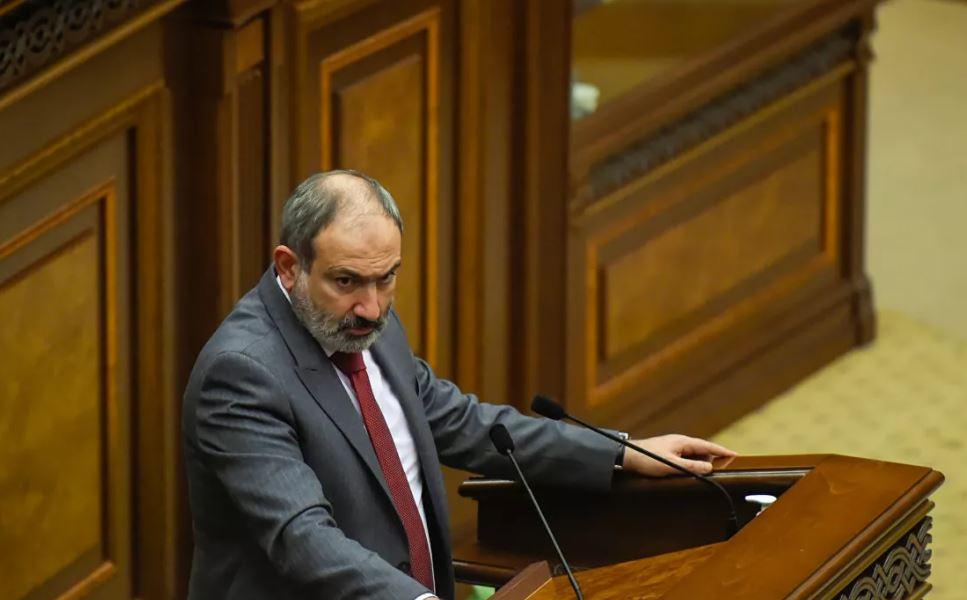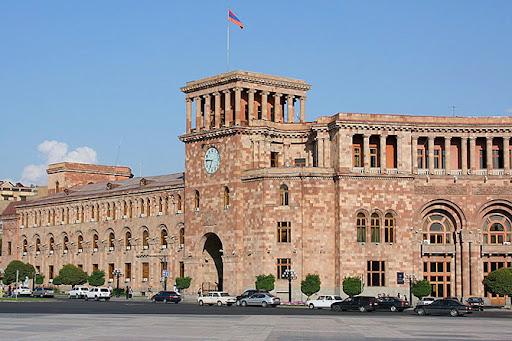Where are Pashinyan's diplomatic manipulations leading Armenia? Such an inconsistent "varchapet"
The main topic of the discussions of the third meeting between the leaders of Azerbaijan and Armenia with the participation of the president of the European Union Council in Brussels was the future peace agreement. EU Council President Charles Michel, who was on a mediation mission, described the talks in the trilateral format as "frank and productive".
The outcome of the talks was indeed significant, as it defined specific actions to resolve the post-conflict situation in Karabakh and the South Caucasus region as a whole. First, the need to unblock transport communications was confirmed, and second, the sides agreed to hold the first joint meeting of the border commissions to discuss specific issues related to the delimitation of the interstate border, which was done a couple of days after the Brussels meeting.
At the same time, Charles Michel said that the heads of the two countries should discuss "the rights and security of the ethnic Armenian population in Karabakh," without mentioning the concepts "Nagorno-Karabakh" and "the people of Artsakh" which have lost their meaning. Not a single word was said about the "status of Karabakh," which is still dreamt of in Armenia.
Actually, Brussels tacitly confirmed the rightness of Baku's position, which, naturally, displeased some politicians in Yerevan. Armenian opposition and a number of experts criticized the Armenian PM before he returned from Brussels. It is clear that any diplomatic mistake of Yerevan on the Russian or European platform is first of all a blow to Pashinyan's image, which is already badly damaged by Armenia's defeat in the Second Karabakh War. Today, any agreement aimed at a peace treaty with Baku is perceived by the Yerevan opposition representatives as Pashinyan's betrayal and to the detriment of the interests of the country and the people. Such allegations are actively promoted by Armenian revanchists, sponsored by the "Karabakh clan".
In the current difficult domestic political situation in Armenia, amid the ongoing protests against the policy of the incumbent authorities, Pashinyan is resorting to all kinds of manipulations to rehabilitate himself in the eyes of the public. Pashinyan's recent speech at the National Assembly meeting on the Brussels round of talks was a confirmation of this.

Thus, the Armenian Prime Minister drew the MPs' attention to Charles Michel's remarks about "the ethnic Armenian population of Karabakh," linking it to the "final status of Karabakh" and "the rights of Armenians in Nagorno-Karabakh". That is, with what the head of the EU Council did not speak about and what has been taken off the post-conflict negotiations agenda for a long time. The leaders of Armenia and Azerbaijan both in Moscow and in Brussels talked only about the unblocking of transport communications in the region, and the conditions of border demarcation. The fact that there is still no concrete progress in these directions testifies to the inconsistency, or rather, the desire of the Yerevan establishment to somehow dodge the last point in the conflict, so as not to irritate the public with their contradictory declarations at the talks in Moscow and Brussels. That is why Pashinyan's promises to the international community have not been put into practice.
To a certain extent, this can be related to the unstable domestic political situation in Armenia. Clear and unconditional fulfillment of the agreements with Baku by Yerevan may lead to unpredictable consequences for the personal interests of Pashinyan and his team, endangering their own power. Apparently, the Armenian prime minister will continue to delay the normalization process with Baku. However, there is another important fact: a significant part of Armenian society is still in favor of the normalization of relations with Azerbaijan, for a return to a peaceful life. That is why Pashinyan's political opponents, represented by Sargsyan and Kocharyan, do not manage to bring any significant number of demonstrators to the streets of Yerevan. This also speaks to the fact that the society is by no means eager for a new war with Azerbaijan and does not want new losses and another fiasco.
At the same time, the relatively small number of actions means that, despite the revanchist sentiments, the Karabakh leaders claiming power - Robert Kocharyan and Serzh Sargsyan - have no chance of being at the helm of the state again. In fact, these are serious enough arguments that Pashinyan could have used if he had had the political will and leadership qualities. But, as we can see, he resorts only to cheap manipulations for the sake of his own interests, delaying the signing of the final peace treaty and not suppressing military provocations on the border with Azerbaijan.
On the other hand, like the previous ruling regimes in Armenia, it demonstrates an absolutely mirror foreign policy, building it according to the orders of Moscow, but constantly looking back at Europe. In other words, it is trying to keep a foot in both camps. Meanwhile, Yerevan's dual policy failed long ago, as was clearly demonstrated by the results of the Second Karabakh War. Russia and Europe indifferently watched Armenia's defeat in Karabakh, while Azerbaijan's "Iron Fist" smashed myths about "Great Armenia", "miatsum" and "the most powerful army in the Caucasus".

The fact that Armenia has not drawn any conclusions from what has happened is primarily detrimental to its state interests and to the well-being of our neighbors. In the post-war period, as never before, Armenia should soberly assess the benefits it will receive from the normalization of relations with Azerbaijan. And also forget about the fact that it can count on any help from Russia - those times are long gone. Moscow no longer hides the fact that it will not burden its ungrateful allies with a bunch of problems.
According to Russian expert Darya Grevtsova, there will hardly be any domestic political changes in Armenia in the foreseeable future unless there are some force majeure circumstances.
"The struggle between the Kocharyan and Sargsyan clans will continue for some time. Both want to regain power, so the level of protest sentiments will prevail for some time," she believes. "At the same time, there is an understanding in the country that if revanchists come to power, the process of normalization of relations with Azerbaijan will finally come to a standstill. A change of power means a new course and a possible war for Karabakh. Most people understand this and many are not ready to go to war again and experience the war. That is, despite the fact that there is a protest base of those who want to go to war, there are many more who hope for a peaceful resolution of the problems with Azerbaijan. In my opinion, there is a chance of signing a peace treaty and settling the issue of border demarcation and delimitation. But to do this, Pashinyan needs to consolidate with society and make reciprocal steps toward Azerbaijan to establish peace in the region, to bring his country out of the economic deadlock and political isolation. Otherwise, the future of Armenia seems extremely doubtful...".








